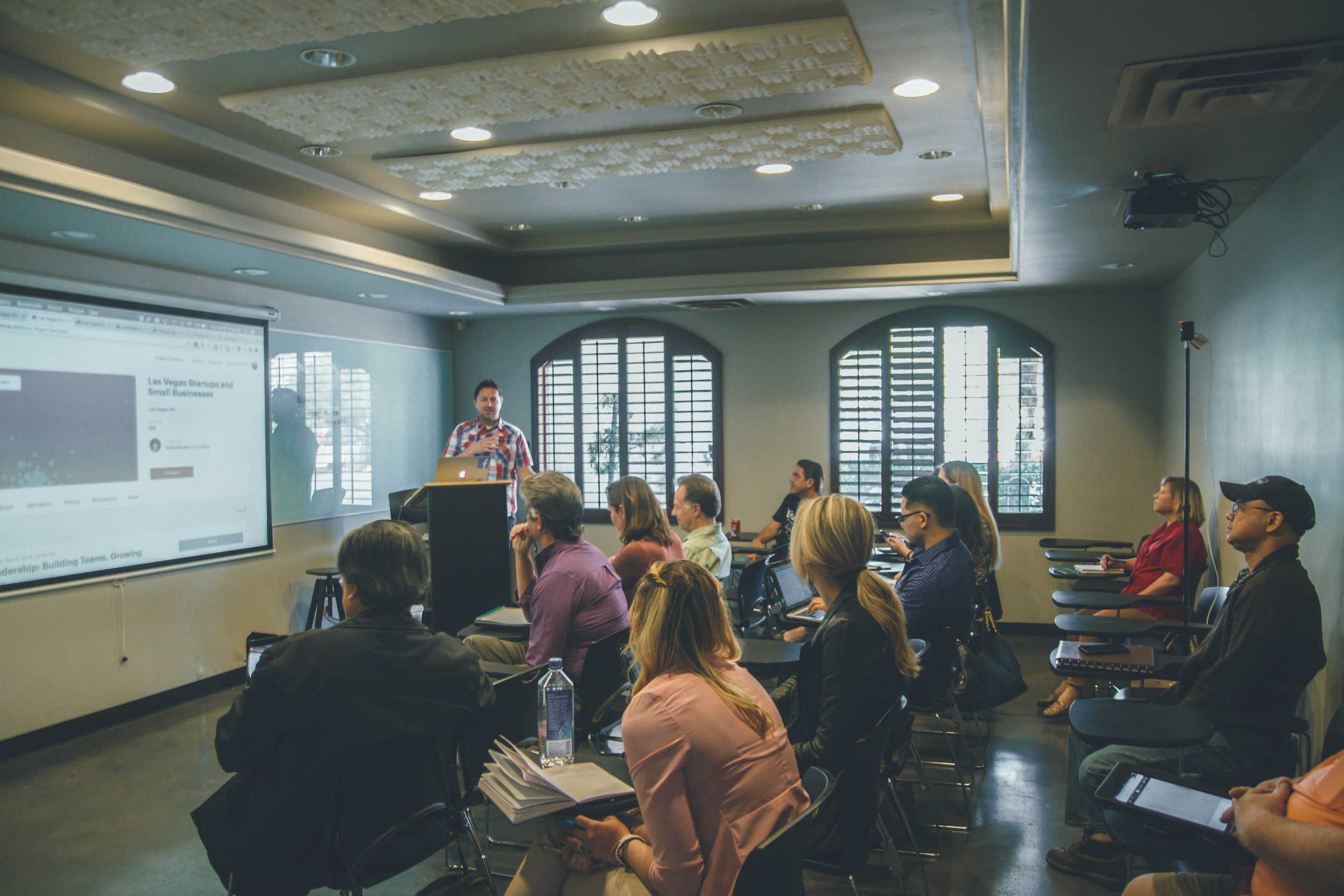
Paving A Path Forward for Engaged Scholarship
Several recent Urban Affairs Review forum pieces have highlighted classroom practices that foster engaged learning by encouraging students, community organizations and policy makers to critically consider and potentially change some of the most complex issues our cities face. But engaged learning, particularly community-based service-learning, can cultivate more than positive communal outcomes. It can be a transformational experience for participants, especially students. In our forthcoming paper at the Journal of Nonprofit and Public Affairs, we lay out a roadmap for designing and executing democratic service-learning courses that generate critical citizenship and social justice advocacy behaviors in public affairs students. Here, we would like to share not only our findings but our process.

Changing Neighborhoods and U.S. Arts Institutions
Arts institutions, defined as organizations that support art production and consumption space (such as performing arts complexes and museums), have been a popular neighborhood amenity in a variety of cities across the United States. They are believed to improve the livability of neighborhoods and to help attract human capital (highly educated and/or wealthy residents) to their locales. But what effect do they have on differently changing neighborhoods? Do new arts institutions help stabilize neighborhoods losing residents? Do they exacerbate the displacement of vulnerable populations in gentrifying neighborhoods? My research, presented in the UAR article "Changing neighborhoods and the effect of U.S. arts institutions on human capital and displacement between 2000 and 2010,” offers evidence and some answers to these questions.

Government Cities in Globalized Interurban Competition
What comes to mind when I tell you that I study “government cities”? Maybe you think about the cliché of Washington, D.C. as a bureaucratic swamp, about the utopian project of Brasilia, about colonial cities such as Pretoria/Tshwane, or about international government cities such as The Hague. Spot on: these are “government cities”. I study these cities under the label of secondary capital cities, defined as capitals that are not the primary economic centers of their nation states. These secondary capital cities can be found on every continent. Famous examples of SCCs exist in Africa (e.g. Pretoria/Tshwane, Abuja), Asia (e.g. Jerusalem, Islamabad), Oceania (e.g. Wellington, Canberra), Europe (e.g. Berlin, The Hague), North America (e.g. Washington, D.C., Ottawa) and South America (e.g. Brasilia, Sucre).

A Tale of Two Neighborhoods
Two recent experiences have led me to conclude that we need to go further in analyzing the effect of neighborhood-level institutions on racial segregation across urban neighborhoods. As a board member for the University District Development Corporation (UDDC) in Little Rock, I participated in a decision last year to extend the UDDC’s boundaries to include a neighborhood with significantly lower income and a larger nonwhite population compared to that of the University District.

Changing Laws for Credit
“Your homework: Change public policy.” This was the daunting task I gave to the aspiring public and nonprofit leaders enrolled in my graduate policy course at Cleveland State University’s Maxine Goodman Levin College of Urban Affairs. This wasn’t simply a pep talk; this task was their main assignment for the course. All semester long, the students were charged to work in groups to lobby for some state or local legislative or administrative change.

Ada County, Idaho is Growing and so is the Role of Women in its Governance
A major story following the 2018 midterm elections is the impressive gains women made in the U.S. Congress and in state races. National media, however, has largely overlooked key victories for women running for local office. For example, in Harris County in Texas, 17 African-American women won their races for local judgeships. Here in Idaho, voters elected two women to the 3-member Ada County Commission. It appears to be the first time women will hold a majority of seats on the Ada County Commission. Ada County includes Boise, the state capital and one of the fastest growing metro areas in the country.

Predicting School Closures in an Era of Austerity
In 2013 the City of Chicago undertook the largest mass school closure in recent history, declaring that the school district’s budget required shuttering 49 of its most underutilized buildings. The city erupted in protest, with the Chicago Teachers Union leading a charge of angry parents, students, and teachers.

Bold vs. Bland
Toronto has been called “the most fascinating totally boring city in the world.” Despite its low crime rate, the over-half internationally born residents, and the fact that it is one of the fastest growing cities in North America, many residents appear comfortable with incremental change or, perhaps even better, no change at all.

Making the Economic Development Process Accessible to Students
Economic development is a complex process by which local entities compete for development projects. Theory development in this area has ranged from descriptions of the economies of corporate clustering, transportation cost networks, central place theory, growth machine theory, and transaction cost theories to name a few. While these theoretical perspectives provide a basis for understanding “why” cities need economic development to survive in a highly competitive, fractured metropolitan space, these theories do little to show students the “how” of economic development decision-making.

Thorny Property Politics
Assessors play an important role in the property tax process in the United States. A homeowner’s taxes are based on the estimated value of their home, and that estimate is made by the assessor. If an assessor over- or under-values a property, then the homeowner will be over- or under-taxed. Over-taxation can produce a cascade of negative consequences, including foreclosure for failure to pay property taxes, while cities want to maintain high collection rates.

Jerusalem: The City Not Allowed To Be a City
All of Israel’s largest cities, including Tel Aviv, Haifa, and Beer-Sheva, will hold state-wide local elections on October 30. These elections will be mostly decided on traditional urban issues like public transport, plans for urban development, as well as on candidates’ charisma and basis of supporters. In Jerusalem, the capital of Israel, however, urban affairs have taken only a marginal space in the debate – instead, national politics’ embeddedness in the election sweeps a side almost any other issue.

Mississippi State is All-In
College students participate in elections at lower rates than average Americans. And yet, being in college exposes them to an environment of diversity, inclusion, political debate, political dissent, and a multitude of social interactions. If the foundations for civic engagement exist, why is there such a disconnect between the college experience and political participation?

Making (Political) Magic in Anaheim
For the past decade, the theme of Disney vs the neighborhoods has dominated Anaheim politics, and this conflict is central to the city’s 2018 elections. When voters go to the polls in November, they will select a new mayor for the first time in eight years, elect three city council members as part of the city’s new district-election format, and decide on a local living wage referendum, which may or may not eventually apply to Disney.

An Applied Economic Development Project for Urban Politics Classes
I have the pleasure of teaching an upper-level political science course called “Urban Politics & Policy.” In order to help my students connect what they are learning to real-life situations, I have them (in small groups) create economic development plans for actual U.S. cities.

Urban Governance in the Suburbs
Much of our understanding of urban politics and local governance is shaped by a focus on large central cities. Yet, many US residents don’t live in these urban spaces. In fact, a report from the Brookings Institute, notes that the distribution of population in many MSAs is significantly dispersed between the central city and suburbs. And while research on local elections and political behavior is growing, literature on politics in suburban cities remains underdeveloped.

Progressive Local Voters in the U.S. South
In May 2018, Athens-Clark County, the home of the University of Georgia, local elections took place alongside gubernatorial and other statewide office primaries, in which the mayor’s office and five seats on the 10-member unified county commission were up for their regular four-year terms, along with half the schoolboard and two judgeships. Although Athens-Clarke County is ideologically liberal, the 2014 elections for these offices saw moderate and right-leaning candidates win these non-partisan offices.

Chicago’s 2019 Elections and The Legacy of Rahm Emanuel
Incumbent Mayor of Chicago Rahm Emanuel’s recent announcement that he will not seek re-election for a third term (the election is in February 2019, with a possible run-off in April) was an earthquake that shook the city’s political landscape. Despite fairly low approval ratings, Emanuel was still the front-runner in a field in which none of the dozen declared challengers had been elected to major office. Since the announcement, many prominent Chicago pols have explored their options, and the pool of candidates is almost certain to change before the November 26 filing deadline. Chicago’s politics sit at a crossroads, as a relatively progressive and prosperous metropolis in a region where urban crisis and creeping conservative drift have been more common lately.

Surge in LGBTQ+ and Women of Color Candidates, Yet Obstacles Remain for LGBTQ+ Voters
The diversity of political candidates across the states is becoming evident with each election cycle, particularly at the local level. More women of color and LGBTQ+ candidates are not only leading strong competitive campaigns, but also winning office with progressive platforms. In 2017, for example, nine openly transgender candidates won elections mostly at the local level: four in city councils and two in school boards. Minneapolis elected two transgender council members – Andrea Jenkins and Phillipe Cunningham – making them the first out transgender black woman and first out transgender black man elected to public office in U.S. history.

Employer Responses to a City-Level Minimum Wage Mandate
Since 2012, more than 30 cities or counties have raised local minimum wages above the federal standard of $7.25 per hour. New wage laws have taken effect in large urban centers such as Los Angeles, New York City, and Chicago, and smaller cities such as Las Cruces, New Mexico and Tacoma, Washington. Advocates for minimum wage laws suggest that such measures will raise wages, reduce income inequality, and make low-wage workers better off; critics counter that higher wages may lead firms to reduce employment, ultimately making workers as a class worse off.

State Government Preemption of Local Government Decisions Through the State Courts
Why do state governments preempt local government policies? Devolution is often embraced as a normatively desirable policy goal, as it expands local autonomy and allows for policies to be tailor-made to the needs of a sub-unit’s constituents. Although decentralization has been at the forefront of the states’ rights movement, there has been limited state-level support for decentralization to the local-level. States have granted local governments some autonomy through home rule and enabling legislation but doing so involves a trade-off between the efficiency of internal policy production and potential delegation costs. Disputes between local and state governments are likely to occur when local residents have ideological preferences that differ from those of state officials.